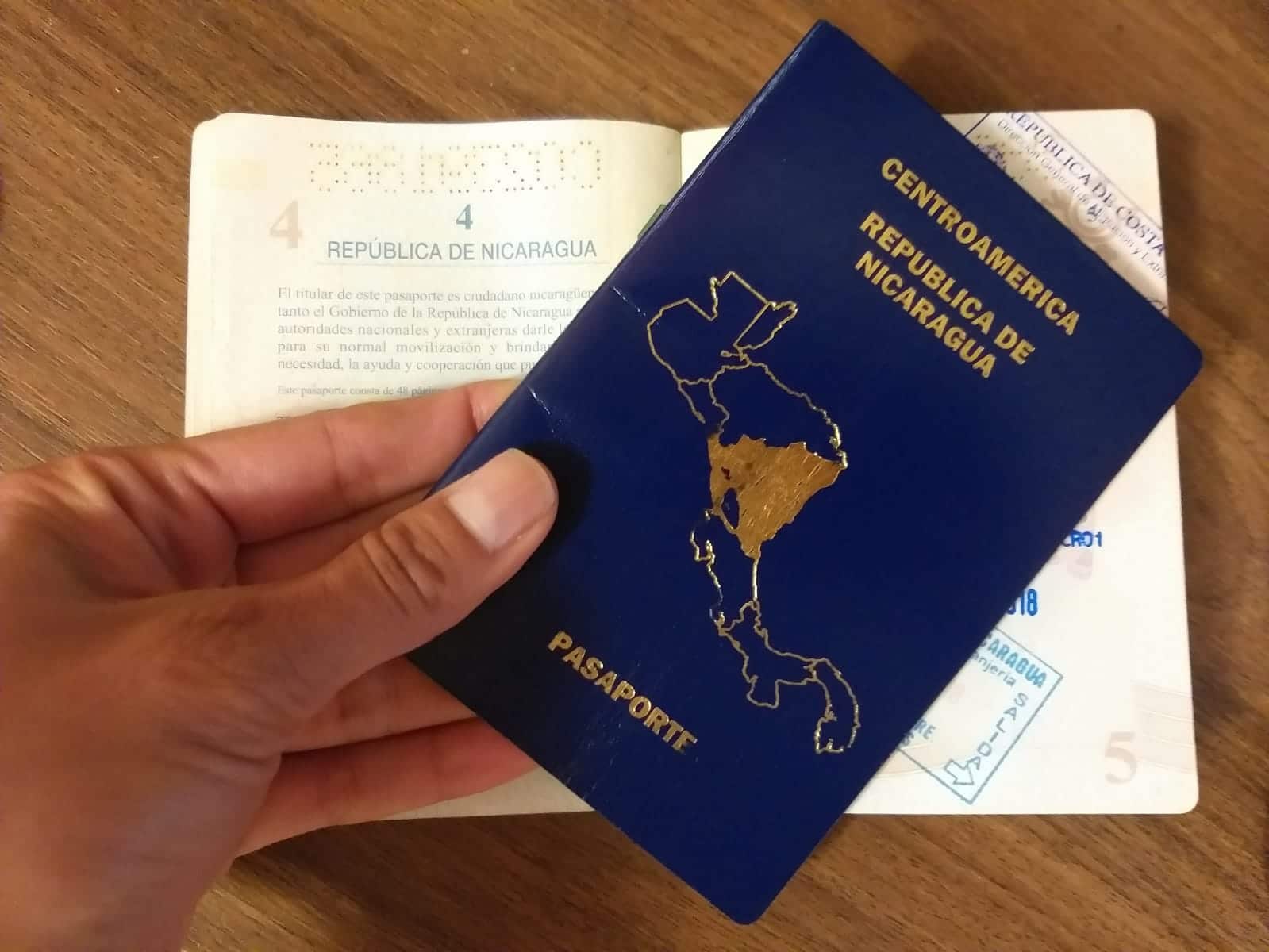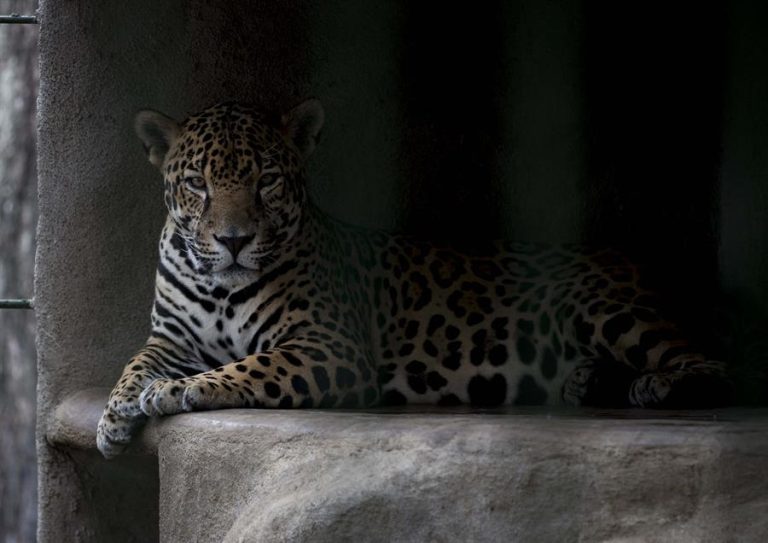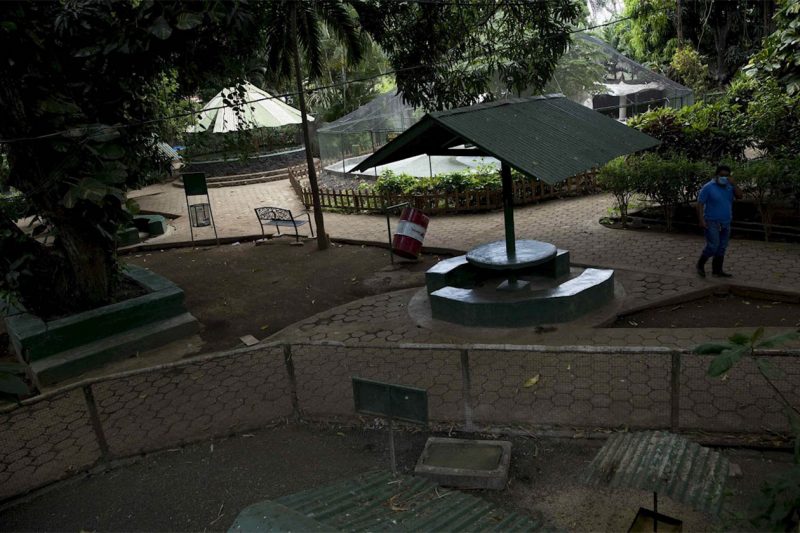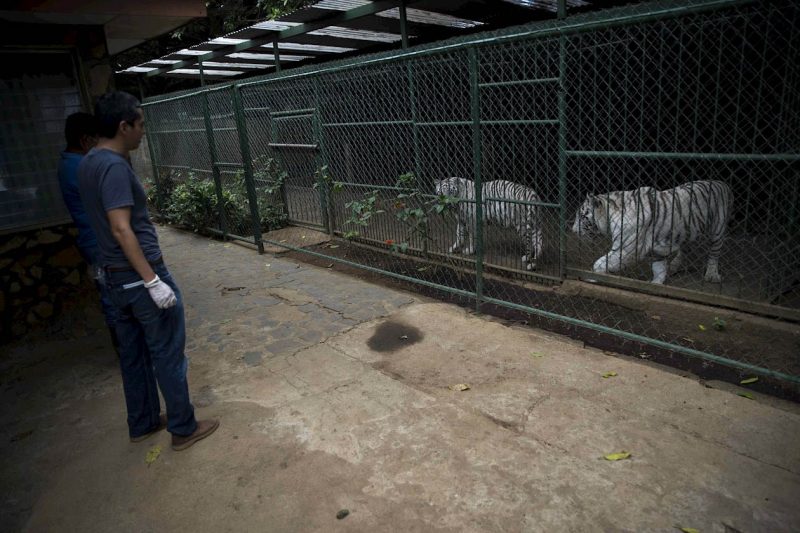31 de marzo 2020

Nicaragua: Public Employees Hindered from Traveling to USA

PUBLICIDAD 1M
PUBLICIDAD 4D
PUBLICIDAD 5D
A lack of visitors to The National Zoo of Nicaragua puts animals at risk of running out of food in the face of the Covid-19 pandemic

Around a thousand animals at The National Zoo of Nicaragua are at risk of running out of food. Due to the lack of visitors caused by the Covid-19 pandemic, animals have very little to eat, reported the Zoo’s administration on Sunday March 29th, all because of Coronavirus, which according to official figures, stands at four cases and one death in the country.
Lions, tigers, jaguars, tapirs, boas, crocodiles, and peacocks are some of the species that might go hungry in the next few weeks if the number of visits does not improve. Visitors are the main source of revenue to purchase supplies, according to the workers of the National Zoo, under private administration.
“It has affected us in the visits we have. We normally have foreign and local public, but we lack that now,” the coordinator German Mercado said.
As a strategy to avoid exhausting the reserves, The National Zoo of Nicaragua decided to sacrifice bird and rabbit specimens. These serve as food for boas and felines, said the center’s chief veterinarian, Eduardo Sacasa.
According to Mercado, the visits had already fallen when Covid-19 was declared a pandemic. And since the first case was detected in Nicaragua, almost nobody comes.
“We used to have an average of a hundred visitors a day, mostly on Sundays. But now it’s critical, if anything, I think 10 people have visited us today (Sunday) at most,” he said.
Mercado asked people that “if you are not going to visit (the zoo), to donate the entrance fee of 30 córdobas (0.85 dollars). Because that’s where the animal feed and the improvements come from.”

Empty sidewalks at the National Zoo this past Sunday in Managua. Photo: EFE/Jorge Torres
“The slaughterhouses usually give us meat. But with the crisis sometimes we don’t manage to collect enough to buy the gasoline we spend to bring it in, so we must assess whether it’s worth it,” Sacasa explained.
The situation at the Nicaraguan Zoo is special, because it was just recovering from the sociopolitical crisis that erupted in 2018, when it was hit by Covid-19.
“This one is worse, because in 2018 people stopped coming but not donating. We no longer had thousands of visitors a day, but we received at least more than an hundred. Now people are not coming because they don’t want to be exposed (to the virus), held Sacasa.
Although the Government of Nicaragua has not taken serious measures to prevent the spread of Covid-19, a large part of the population has decided to follow the recommendations of the World Health Organization (WHO). Among these are social distancing, and not leaving the house unless necessary, which has resulted in fewer visits to The National Zoo of Nicaragua.

Caretakers watching two white tigers this Sunday at the National Zoo in Managua (Nicaragua). EFE/Jorge Torres
Even the schools cancelled their visits to the National Zoo, despite the Government’s order to keep school activities undisturbed. This resulted in a temporary closing of the restaurant and even the parking lot, two important sources of income.
The National Zoo of Nicaragua does not extract species from their natural habitat, but it does reproduce them. It also runs the National Animal Rescue Center, which trains hundreds of animals every year, and carries out dozens of releases in some of the country’s best-preserved nature reserves.
PUBLICIDAD 3M
Agencia de noticias internacional con sede en Madrid, España. Fundada en Burgos durante la guerra civil española en enero de 1939.
PUBLICIDAD 3D